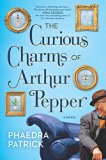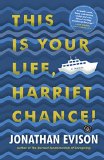Summary | Excerpt | Reviews | Beyond the book | Read-Alikes | Genres & Themes | Author Bio

From Flannery O'Connor and Rona Jaffe Award winner Lori Ostlund, a deeply moving and beautiful debut novel about a man who leaves his longtime partner in New Mexico for a new life in San Francisco, launching him on a tragicomic road trip and into the mysteries of his own Midwestern childhood.
Sensitive, big-hearted, and achingly self-conscious, forty-year-old Aaron Englund long ago escaped the confines of his Midwestern hometown, but he still feels like an outcast. After twenty years under the Pygmalion-like direction of his older partner Walter, Aaron at last decides it is time to stop letting life happen to him and to take control of his own fate. But soon after establishing himself in San Francisco - where he alternates between a shoddy garage apartment and the absurdly ramshackle ESL school where he teaches - Aaron sees that real freedom will not come until he has made peace with his memories of Morton, Minnesota: a cramped town whose four hundred souls form a constellation of Aaron's childhood heartbreaks and hopes.
After Aaron's father died in the town parade, it was the larger-than-life misfits of his childhood - sardonic, wheel-chair bound dwarf named Clarence, a generous, obese baker named Bernice, a kindly aunt preoccupied with dreams of The Rapture - who helped Aaron find his place in a provincial world hostile to difference. But Aaron's sense of rejection runs deep: when Aaron was seventeen, Dolores - Aaron's loving, selfish, and enigmatic mother - vanished one night with the town pastor. Aaron hasn't heard from Dolores in more than twenty years, but when a shambolic PI named Bill offers a key to closure, Aaron must confront his own role in his troubled past and rethink his place in a world of unpredictable, life-changing forces.
Lori Ostlund's debut novel is an openhearted contemplation of how we grow up and move on, how we can turn our deepest wounds into our greatest strengths. Written with homespun charm and unceasing vitality, After the Parade is a glorious new anthem for the outsider.
At times the novel can feel like a set of short stories, only loosely connected through the character of Aaron. Ostlund won a Flannery O'Connor Award for a previous short story collection, and you can understand why: she creates unforgettable scenes and characters, each one with a fully realized backstory. I wasn't sure that she quite brought them all together as a novel, though: Aaron himself is not as vivid as some of the secondary characters, especially Clarence, and I never understood exactly why Aaron left Walter. Still, the overarching theme of the novel is strong and resonant: "after the parade," after everything has changed irrevocably, you must keep going, pushing past loneliness and trauma to build a new life...continued
Full Review
 (713 words)
(713 words)
(Reviewed by Rebecca Foster).
Most of us are familiar with high-profile book recognitions such as the Man Booker Prize or the National Book Award. There are many lesser known writing awards and programs that are prestigious and well known in literary circles. Lori Ostlund, author of After the Parade, can include two such recognitions as part of her biography: The Flannery O'Connor award and being accepted to attend the Bread Loaf Conference.
The Flannery O'Connor Award
Every year since 1983, the University of Georgia Press has considered manuscripts for the Flannery O'Connor Award for Short Fiction, given annually to the two best short story collections or novellas. The competition, which charges a $30 fee per application, attracts nearly 300 entries per year. ...

If you liked After the Parade, try these:

The Curious Charms of Arthur Pepper
by Phaedra Patrick
Published 2017
In this poignant and sparkling debut, a lovable widower embarks on a life-changing adventure

This Is Your Life, Harriet Chance!
by Jonathan Evison
Published 2016
Part dysfunctional love story, part poignant exploration of the mother/daughter relationship, Jonathan Evison has crafted a bighearted novel with an endearing heroine at its center.
People who bite the hand that feeds them usually lick the boot that kicks them
Click Here to find out who said this, as well as discovering other famous literary quotes!